When Carlos Morales, a DJ in Maricon Collective -- a group of four queer Los Angeles Chicano DJs and artists -- was growing up, it was normal for his mom to use the Spanish gay slur around the house. "I remember when I was a teenager, telling my mom I was into guys, and she said, 'Que eres maricon?' ("Are you a f****t?")
He lifts his arms to demonstrate how he responded to his mother at the time, defensive yet empowered, and raises his chin and voice when he says, "Soy maricon y que?!" ("I am a f****t, so what?!")
Morales relays the story on a warm Sunday afternoon in a secluded area along the Los Angeles River, near L.A.'s Atwater Village neighborhood, where two taqueros are grilling carne asada and warming fresh tortillas. The collective -- which formed last year to host parties, create art, and promote other queer Latino artists -- is camped out at an 18-acre industrial lot located along the river, where they're revealing their latest mural as part of the Bowtie Project, an arts project sponsored by California State Parks and an arts organization called Clockshop. The collective's new piece, New Birth, is a companion to the LGBT-themed mural Por Vida (For Life), which was repeatedly vandalized in San Francisco this summer.
The group set up a temporary base near the new mural, where collective member Michael Rodriguez is spinning "Bound" by Ponderosa Twins Plus One on the speakers. Manuel Paul, the group's mural artist, is sitting next to a paleta cart, chatting with a man in leather and a mesh shirt. There's a cooler of ice that holds bottled water, Miller Lite, and Tecate next to the DJ booth, where the air smells of steak as the sun starts to set, and Rudy Bleu, a DJ in Maricon Collective, is munching on some tacos, while Morales dances, talks to a friend, and drinks a beer.
This is where the members of Maricon Collective found themselves reflecting over the past few months, a time when the group faced homophobic threats of violence and saw Por Vida defaced three times. The mural depicted a gay couple in an embrace, a female pair with one woman holding the other's face, and a trans man with scars from top surgery.
Back in June, Maricon Collective was invited to create the mural in San Francisco's Mission District by Galeria de la Raza, an arts nonprofit that promotes Chicano and Latino art. The first time the mural was defaced, the painted faces were crossed out using red spray paint. Meanwhile, the group was threatened on social media by the alleged perpetrators, who claimed they were offended by the idea that the mural represented, which was seen as a threat to the way of life for cholos and lowrider culture. Over Instagram, commenters claimed that the people represented in the mural do not exist: "To have gay cholos is unheard of." The vandals threatened that they were going to continue to destroy the mural because, "All the cholos feel disrespect due to the image of machismo being weakened."
The claim that gay Latinos do not exist is something that Rodriguez could not understand, having come from the same Chicano subculture.
Rodriguez, wearing a black snapback, a graphic T-shirt of Martin (a prominent Latina drag queen from the 1990s), and a black button-up shirt, says, "To say we don't exist ... we all grew up with the homeboys. My uncle. My cousins. They're us; we're them."
The gallery galvanized an effort to raise funds to repair the mural, and within the same week, it was vandalized again. Gallery members and volunteers restored the mural once again, only to have it again defaced and then torched. A witness was able to put out the blaze with a fire extinguisher, preventing what could have been "very devastating" damage to the building, the San Francisco Police Department noted to The Advocate. The police department's Arson Task Force told The Advocate that they were working with the investigators already pursuing the two previous vandalisms as hate crimes.
Maricon Collective never set out to make a political statement. The group originally formed as a party night at a gay club, but a year later, it's come to represent more of an identity for young queer Latinos in Los Angeles. As what the group stood for evolved, so did its intentions. Mural artist Manuel Paul saw an opportunity to display queer pride through Maricon Collective: "To create a brown space for the people that don't really have it." Paul wants to show people that you can be Chicano and gay, that you can be Latino and gay, and, for young kids who haven't come out yet or who are having a hard time in their families, to show them "we exist."
The four men of the collective weren't particularly surprised when they received notice from the gallery that the mural had been vandalized. Morales admits to harboring some hesitancy from the beginning: "Honestly, when Manuel Paul made it and I looked at it, and it got taken down, I knew something was going to happen because I know that the Chicano/Latino cholo/chola community can be very closed-minded."
The mural commission was only supposed to last for a month, but because of the repeated vandalisms and controversy, the mural was left on exhibition all summer in the Mission District. This past week, the exhibition officially ended. This left Paul feeling "bittersweet" about the fact that the mural stayed up longer, because it meant more people were able to see it, but the reason it was made available tainted the moment.
The people spreading negative messages about the mural over social media were small but vocal enough that it made their opinion echo loudly, and this was difficult for Paul, he says, because "being gay, you take the negative, you have to ... you have no choice."
It was through Instagram that the group received threats from the vandals in San Francisco. After the mural's second defacement, an Instagram commenter wrote on La Galeria's Instagram page, "This painting doesn't make any sense, gay cholos don't exist in the mission and never have... Maybe in LA where ya'll really from but not in The Mission! Get it right."
Tensions were heated and the members of Maricon Collective became paranoid, and they took the threats of violence very seriously. They made their Instagram account private to ward off some of the negativity they were receiving. At the time, they were less concerned with having to continually replace the mural and instead worried about their safety. "What we were concerned about is that those people are ... pulling pictures of kids wearing the Maricon Collective or Maricon shirts and saying, 'If you see this kid on the street, beat him up.'"
Morales (pictured above), usually the quiet one of the group, admitted being affected by the response: "There was a lot of drama online about it. It was just a lot of people saying, 'I'm not homophobic, but ... ' The fact that you have to say 'but' is the worst. It made me sad, but I knew it was going to happen."
What many didn't hear amid the rancor was that this issue united the Mission's LGBT Latino community. Queer people can often be divided, says Paul, but in this instance, "I'm really proud of the gallery, and all the people that banded together. Not only did I love the piece, but I loved what developed from the piece, which was unity, and it's really hard to create unity. You don't see that and for an art piece to really do that for people is very rare."
New Birth is a reflection of the mural in San Francisco -- the repeated defacements, the repeated repairs, and the symbol it became for those following what happened. Paul calls it a companion piece to Por Vida. The mural features a woman revealing her bare chest with her hair covering her breasts, a man on each side of her looking straight at the viewer, and two men holding a tuna (cactus fruit) in the center of the piece. Paul sees symbolism in each figure that dates back to Por Vida. "The cactus symbolizes the negative that came up from the mural, and the two men on the bottom with arrows on the back represents being stabbed in the back by your own people that you thought would be there for you."
The thorns of a cactus make it seem impenetratable or hostile, but this cactus, even with all its thorns, has grown fruit. "What develops from the cactus is this fruit that's a positive. It's giving these two men that went through so much, and they are giving it to the younger generation."
"It's all about a new journey," says Paul, as he squints from the sun.
Maricon Collective defines "maricon" as a "derogatory term; crude word for a gay man used by straight men and women to insult gay men or to question the masculinity of straight men. Comparable to f****t." It was back in April of 2014 that the group first formed, and through the unexpected homophobia they experienced over the summer, and the unity that followed, the definition of "maricon" has morphed into something the group never expected. Instead of allowing the word to harm them, they've turned it into "an affectionate term of address used by certain gay men to address other gay men, often in jest."
It was through punk rock music that Bleu first learned to embrace the word "queer" as a term of empowerment. While some people may still consider the word "maricon" to be offensive, Bleu hopes that the group's efforts to reclaim it will neuter it, so it "won't sting as much as 'queer' does to people."
New Birth will be displayed until October 19. Click here and here for more information. Video courtesy of Clockshop.
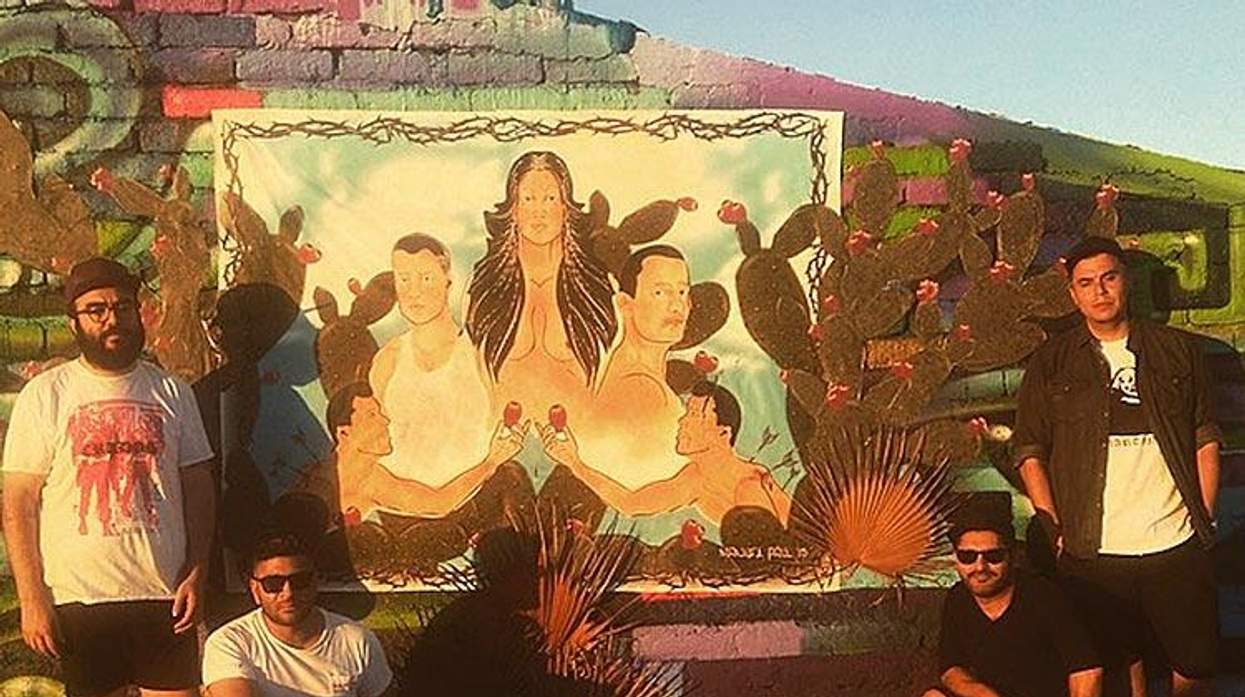
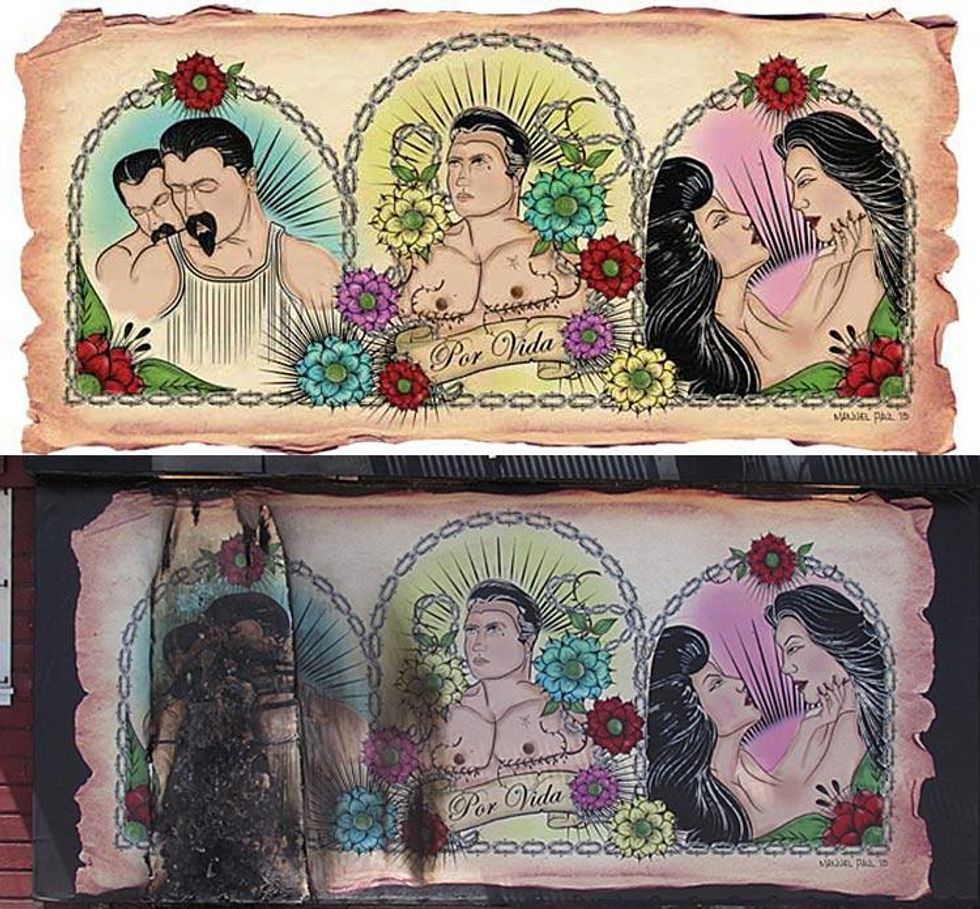
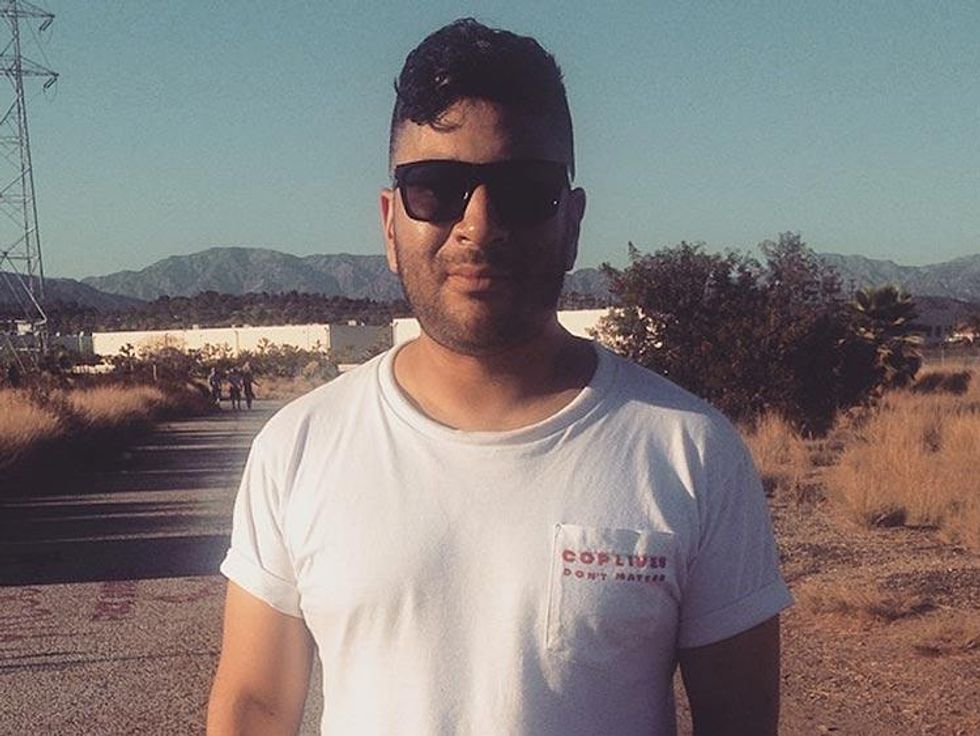
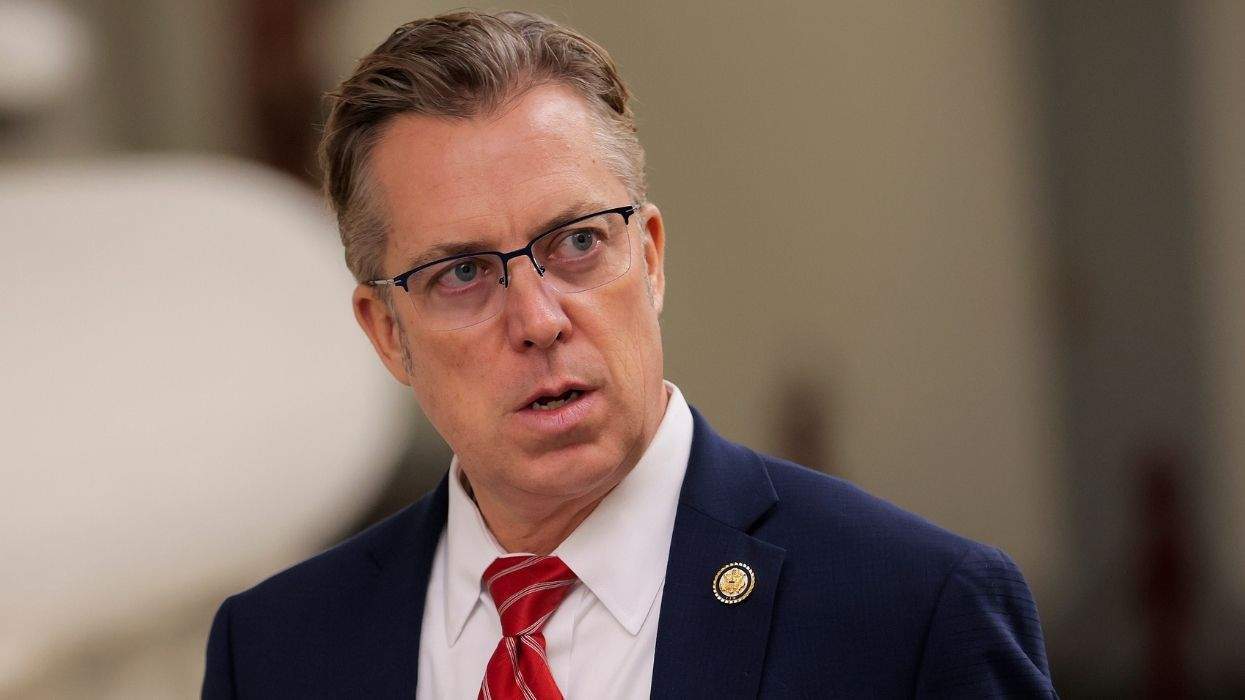






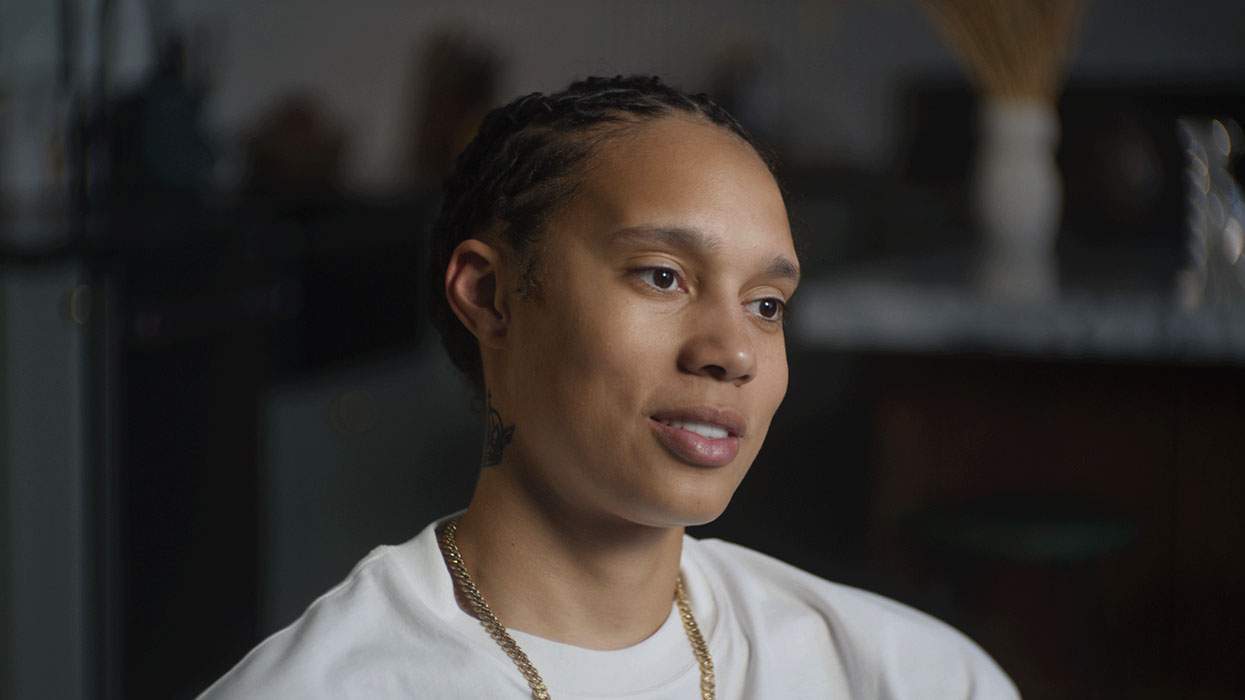
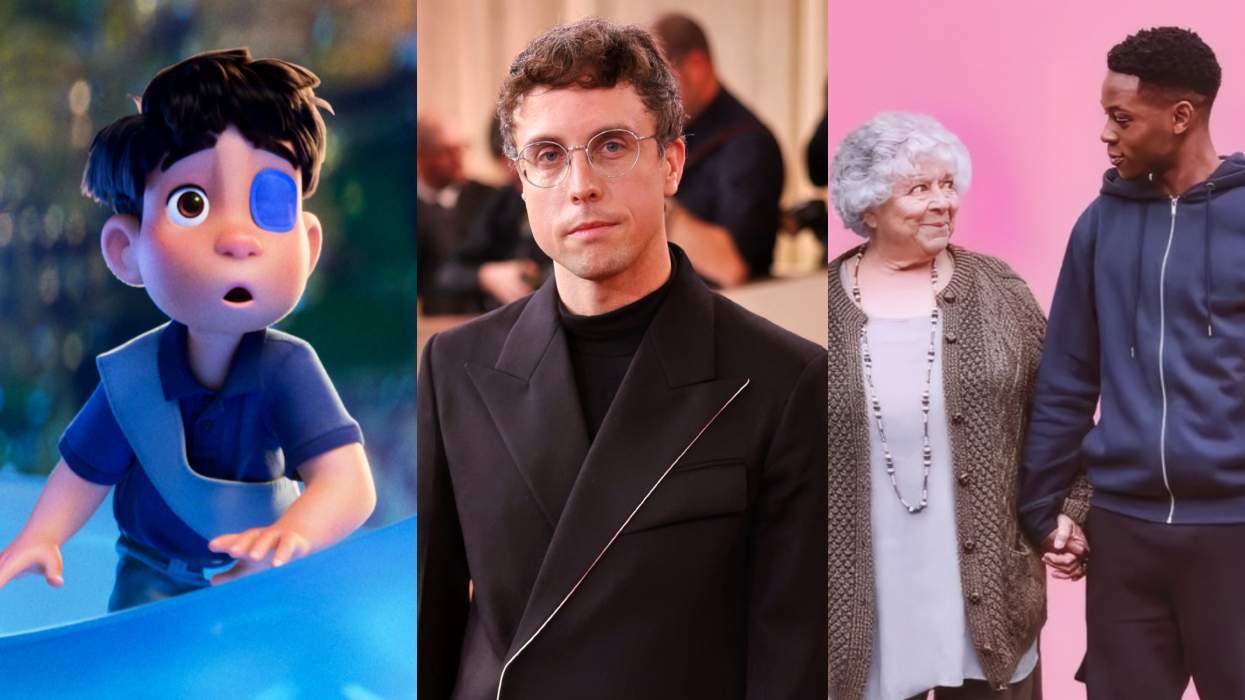





Charlie Kirk DID say stoning gay people was the 'perfect law' — and these other heinous quotes
These are some of his worst comments about LGBTQ+ people made by Charlie Kirk.